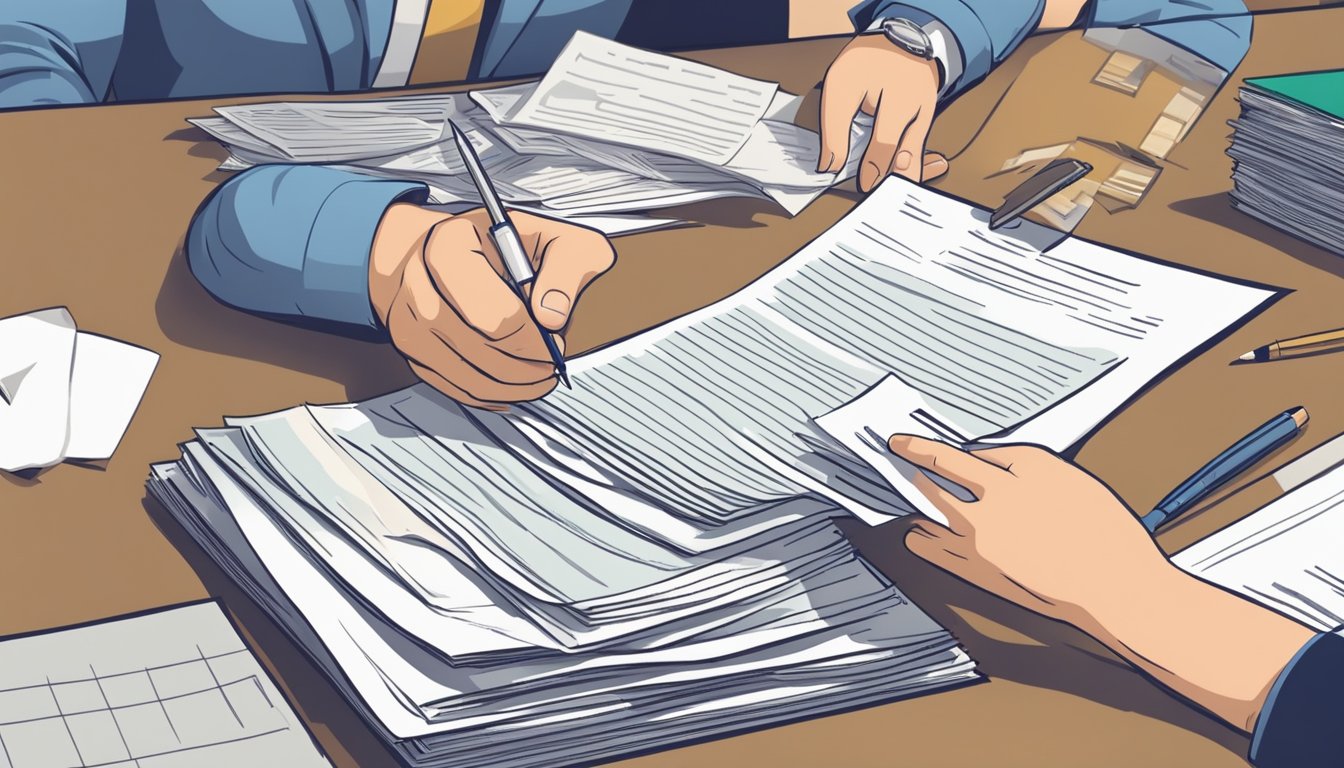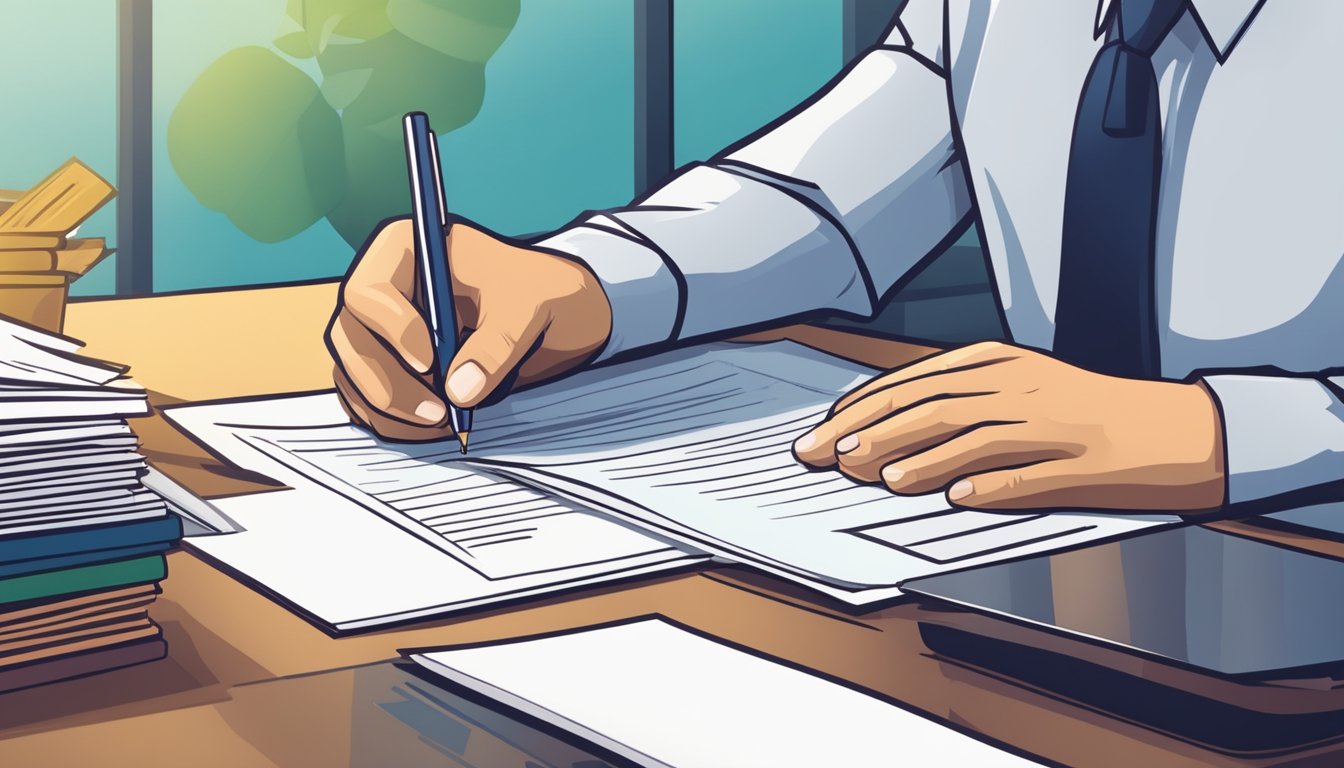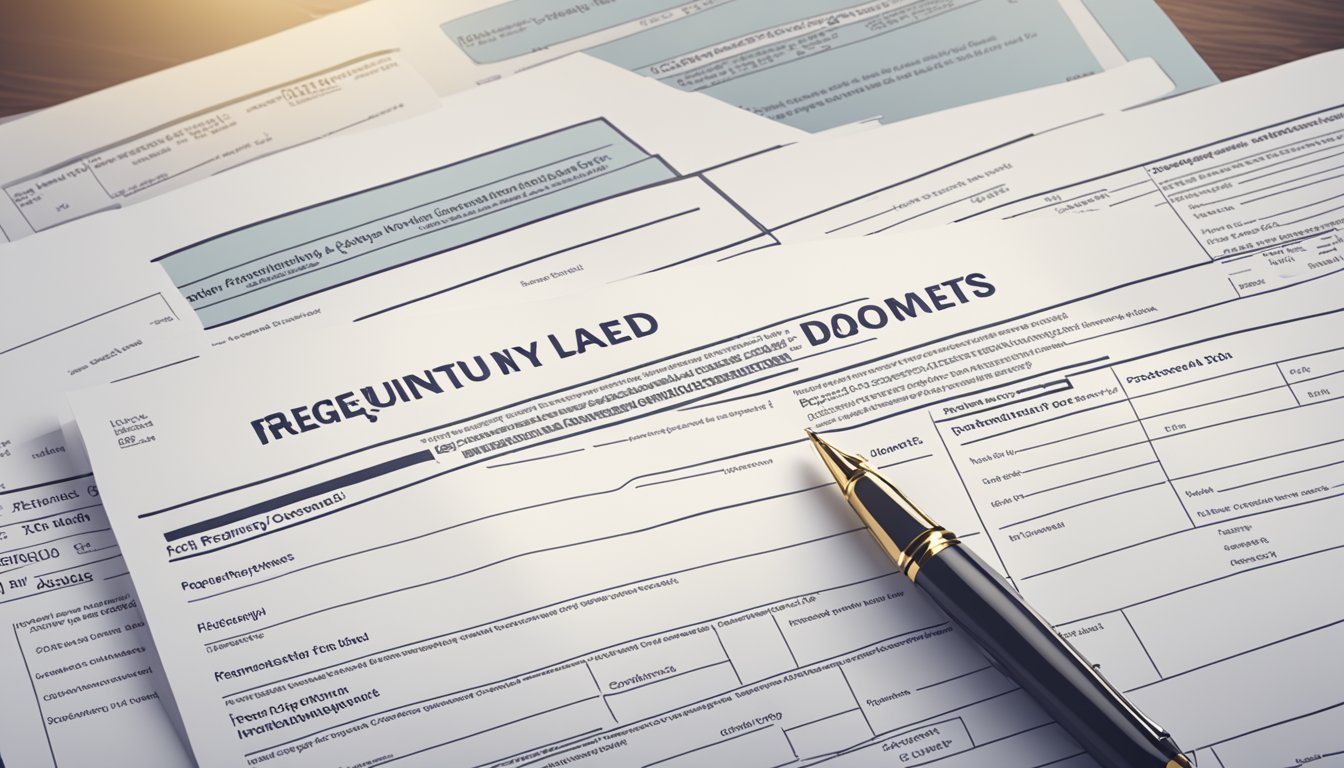
If you’re a small business owner seeking a loan, you may be asked to sign a personal guarantee. This means that you will be personally responsible for repaying the loan if your business is unable to do so. While it may seem like a small detail in the loan agreement, it’s important to understand the implications of signing a personal guarantee.
Understanding Personal Guarantees
A personal guarantee is a legally binding agreement that makes you personally responsible for repaying a business loan if your business is unable to do so. In essence, it means that you are putting your personal assets on the line to secure the loan. Personal guarantees are often required by lenders, especially for small businesses or startups that may not have a long credit history or significant assets to use as collateral.
Consequences of Business Loan Default
If you default on a business loan, the consequences can be severe. If you signed a personal guarantee, the lender can seize your personal assets, such as your home or car, to repay the debt. This can be devastating for small business owners who have put their personal assets on the line to secure the loan. Additionally, defaulting on a business loan can damage your credit score, making it more difficult to secure financing in the future.
Key Takeaways
- A personal guarantee makes you personally responsible for repaying a business loan if your business is unable to do so.
- If you default on a business loan, the lender can seize your personal assets to repay the debt.
- Defaulting on a business loan can damage your credit score and make it more difficult to secure financing in the future.
Understanding Personal Guarantees

If you’re a business owner seeking a loan, you may be asked to provide a personal guarantee. A personal guarantee is a legal agreement that holds you personally responsible for repaying the loan if your business cannot. In this section, you’ll learn about the different types of personal guarantees, the risks they pose for business owners, and their impact on personal credit.
Types of Personal Guarantees
There are two main types of personal guarantees: limited and unlimited. A limited personal guarantee sets a cap on the amount for which you are personally liable. In contrast, an unlimited personal guarantee means that you are responsible for repaying the entire loan amount, regardless of how much your business owes.
Risks for Business Owners
Providing a personal guarantee can be risky for business owners. If your business defaults on the loan, you could be held personally liable for the outstanding debt. This means that your personal assets, such as your home or car, could be seized to repay the loan. Additionally, defaulting on a loan can damage your credit score and make it more difficult to obtain future loans.
Impact on Personal Credit
When you provide a personal guarantee, the lender will likely check your personal credit score and history. If your business defaults on the loan, this could negatively impact your credit score. This is because the lender may report the default to credit bureaus, which can lower your credit score and make it more difficult to obtain credit in the future.
In summary, providing a personal guarantee can be a risky proposition for business owners. It’s important to understand the different types of personal guarantees and the risks they pose before signing any loan agreements. If you do decide to provide a personal guarantee, make sure you have a plan in place to repay the loan in the event that your business cannot.
Consequences of Business Loan Default

If you default on a business loan, it can have severe consequences, both financially and legally. It is important to understand the implications of defaulting on a business loan, especially if you have signed a personal guarantee for the loan.
Legal Implications and Lender’s Rights
When you default on a business loan, the lender has the right to take legal action against you. This can include filing a lawsuit, obtaining a judgment against you, and seizing your business assets. In some cases, the lender may also be able to garnish your wages or bank accounts.
Additionally, if you have signed a personal guarantee for the loan, the lender may be able to go after your personal assets as well. This can include your home, car, and other valuable possessions.
Effects on Personal Assets and Credit
Defaulting on a business loan can have a significant impact on your personal finances and credit score. If the lender takes legal action against you and seizes your assets, you may be left with little to no cash flow, making it difficult to pay your bills and other expenses.
Furthermore, defaulting on a business loan can damage your credit score, making it harder to obtain financing in the future. The lender may also report the default to credit bureaus, which can have a negative impact on your business credit as well.
Strategies for Mitigating Loss
If you find yourself in a situation where you are unable to make your loan payments, it is important to act quickly to mitigate your losses. One option is to negotiate with the lender to modify the terms of the loan or create a repayment plan that is more manageable for you.
Another option is to seek the help of an attorney who specializes in business loans and debt negotiation. An attorney can help you understand your legal rights and options and work with the lender on your behalf to come up with a solution that works for both parties.
In conclusion, defaulting on a business loan can have serious consequences, both financially and legally. It is important to understand the terms of your loan agreement and the potential risks involved before signing a personal guarantee. If you find yourself in a situation where you are unable to make your loan payments, it is important to act quickly and explore all available options to mitigate your losses.
Frequently Asked Questions

What occurs if one fails to meet the obligations of a personal guarantee?
If you fail to meet the obligations of a personal guarantee, the lender can pursue legal action against you, and you may be required to repay the loan with your personal assets. This can include seizing your property, bank accounts, and other assets to repay the loan.
Can personal assets be pursued following a business loan default with a personal guarantee?
Yes, personal assets can be pursued following a business loan default with a personal guarantee. This is because the personal guarantee makes you personally liable for the loan, and the lender can take legal action to recover the debt.
How might one mitigate the risks associated with providing a personal guarantee?
One way to mitigate the risks associated with providing a personal guarantee is to negotiate with the lender to limit the amount of the guarantee or to provide collateral instead. You can also consider obtaining personal guarantee insurance, which can provide protection against loan defaults.
Is there a difference in liability for a personal guarantee within a limited liability company?
Yes, there is a difference in liability for a personal guarantee within a limited liability company. In this case, the personal guarantee may not be enforceable against the LLC, but it can still be enforced against the individual who signed the guarantee.
What are the potential repercussions for a guarantor if the primary borrower defaults?
If the primary borrower defaults, the guarantor may be required to repay the loan with their personal assets. This can include seizing property, bank accounts, and other assets to repay the loan. Additionally, the guarantor’s credit score may be negatively impacted, making it more difficult to obtain credit in the future.
Does obtaining personal guarantee insurance offer protection against loan defaults?
Yes, obtaining personal guarantee insurance can offer protection against loan defaults. This type of insurance can provide coverage for the amount of the guarantee and can help protect your personal assets in the event of a loan default. However, it is important to carefully review the terms and conditions of the insurance policy to understand what is covered and what is not.




